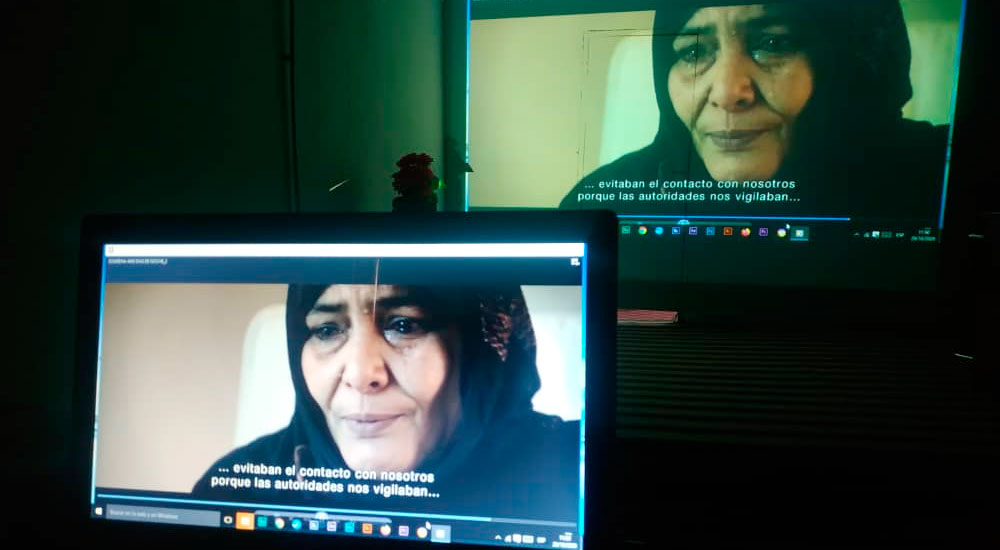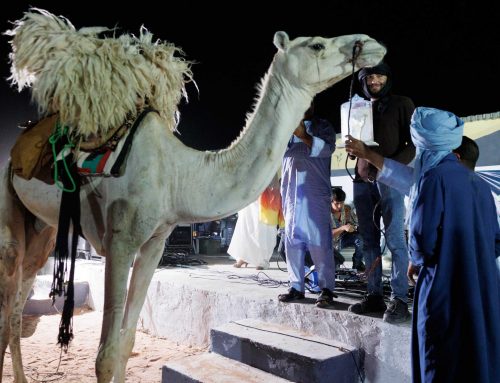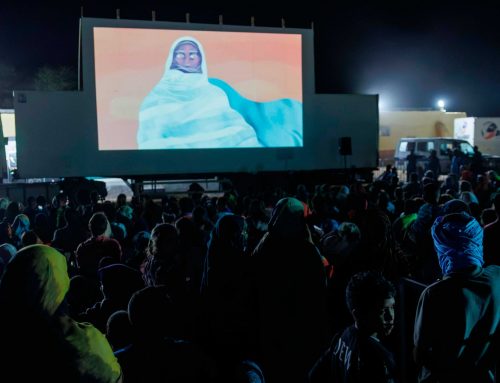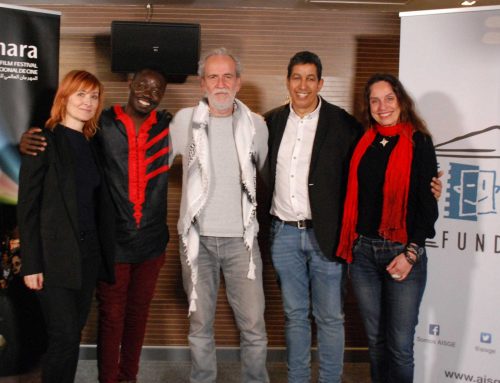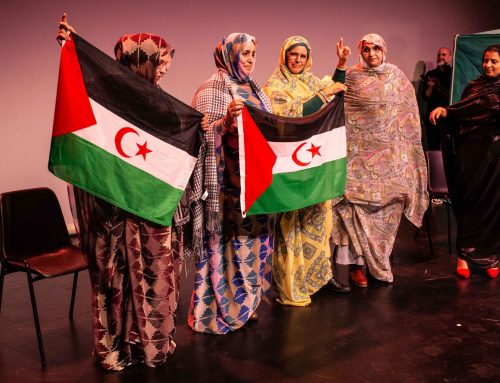The room grew silent as a woman in a light blue melfha appeared on the small screen of a cellphone. The women greeted her and she greeted them back. Despite the technical challenges of connecting a refugee camp with an occupied territory in real time, the women had succeeded: here they were, speaking with their sister-in-struggle whose home is under constant police siege; whose every move is surveilled and controlled by an occupying power, who often appears on grainy videos filmed by activists fearlessly waving Sahrawi flags and being beaten back by male officers.
The second day of Fisahara’s film impact workshop may have been the most emotionally charged for the 15 women participants.
Two days before the UN Security Council was set to vote on the renewal of the mandate of the United Nations Mission for the Referendum in Western Sahara (MINURSO), the only mission of its kind that does not include a human rights component, the women at the helm of FiSahara’s workshop focused their second session on Women in Occupied Territories and their role in peacebuilding.
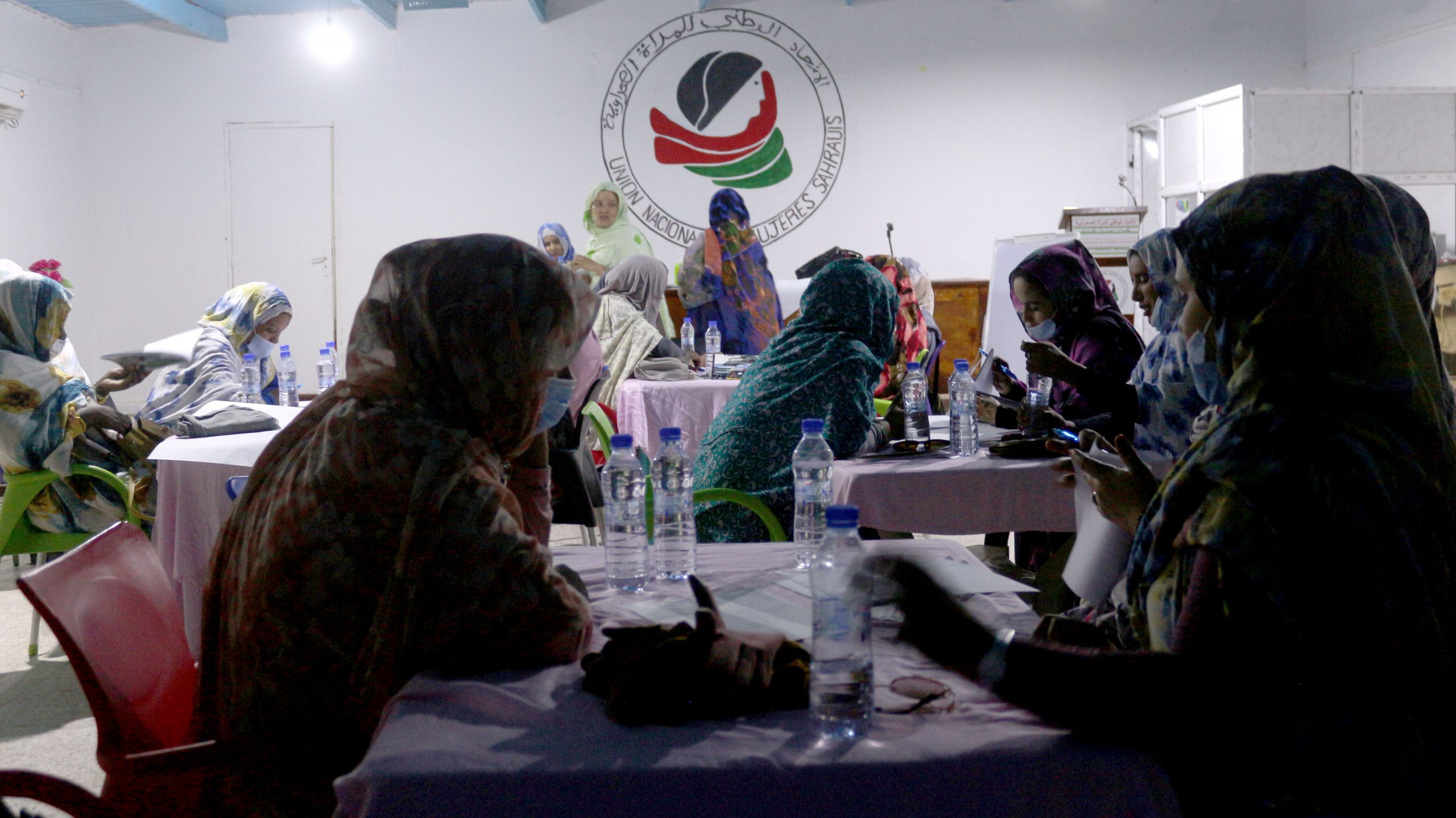
How to Organize Screenings and Debates for Social Impact is a film impact workshop organized by FiSahara, Nomads HRC and the National Union of Sahrawi Women (UNMS), with support from Movies That Matter that is taking place in the Sahrawi refugee camps, near the Algerian city of Tindouf. It kicked off on Sunday November 25th and is led and attended by Sahrawi women. The first session focused on the role that cinema, and in particular Western Sahara-focused films, can play in creating social change.
On the second day, women watched a short film about the UN and the peace process (Security Council Resolution 1325 on Women, Peace and Security) as well as Soukeina, 4,400 days of night, which narrates the story of activist Soukeina Yedehlu, who was disappeared by the Moroccan régime for 15 years and suffered torture in Morocco’s secret prisons.
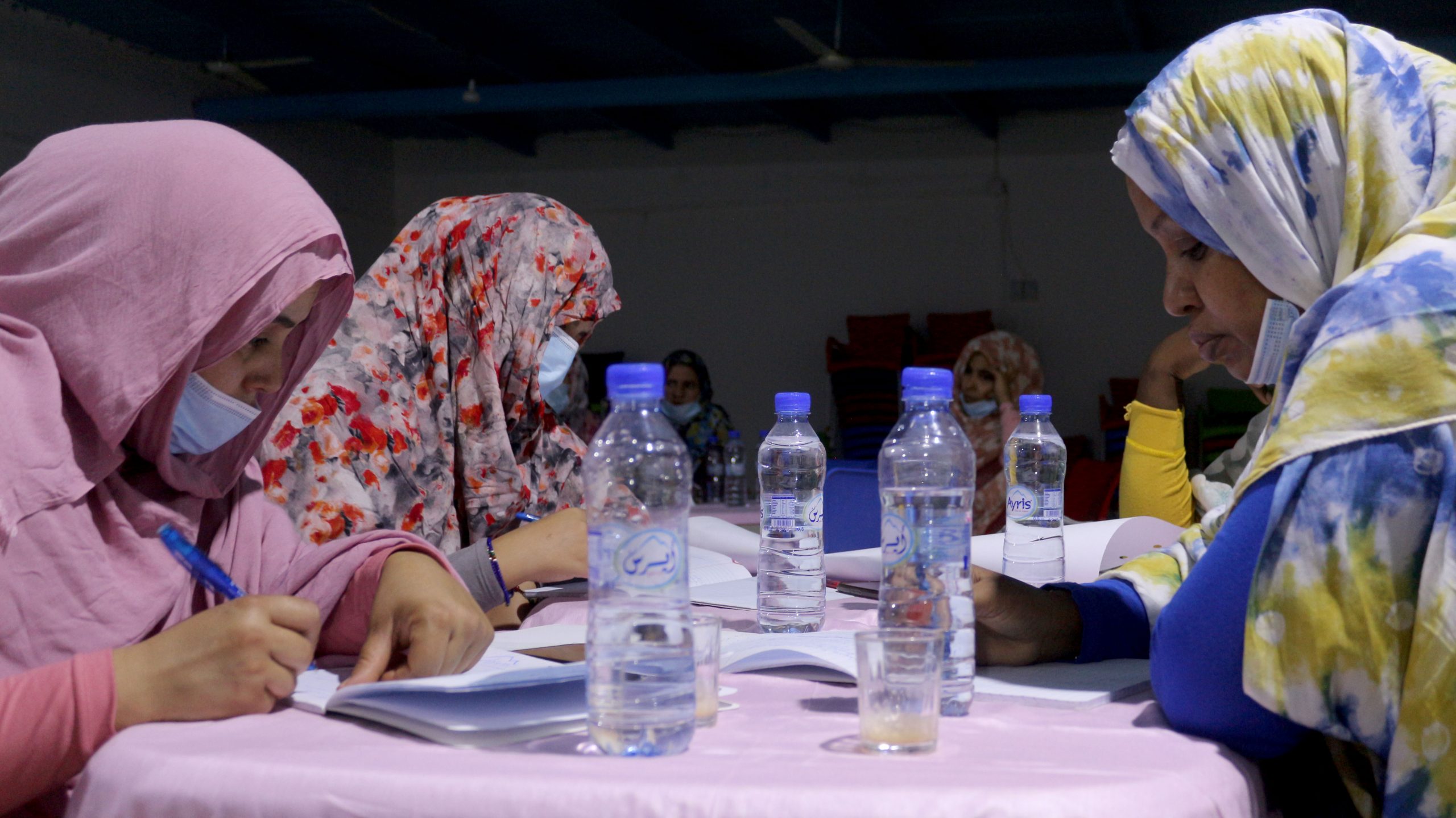
The live connection with Mina Baali, an activist who regularly braves Moroccan police repression and arrest in order to call international attention to the human rights crisis inside the territory, focused on how Sahrawi women are at the forefront of peaceful activism, often risking their safety to raise awareness about the occupation. Baali’s home has been under siege since she and other prominent Sahrawi human rights defenders announced the creation of ISACOM, a new organization, banned by Morocco, that seeks to pressure the international community to make good on the 1991 UN promise of a referendum on self-determination for Western Sahara.
The film screenings provided a starting point for a debate on why women should be central in the decision-making process, especially in conflict-affected areas. They also discussed why international institutions that safeguard peace, the police and the judiciary should ensure the protection and commitment to the human rights of women and girls, who are the most vulnerable groups in situations of conflict.
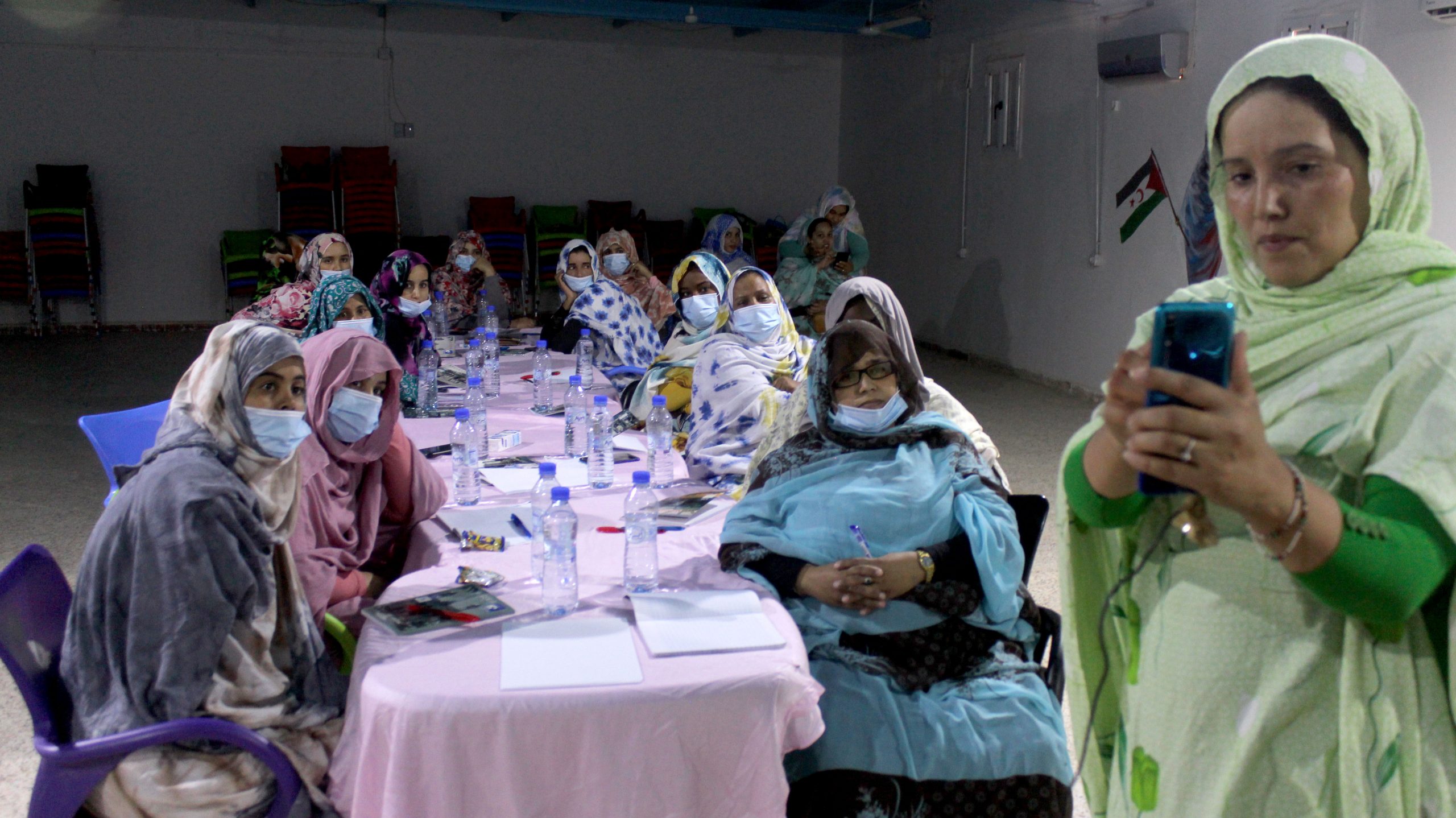
After the screening of Soukeina, 4,400 days of night, the women welcomed Sukeina Baiun, the governor of the Bojador refugee camp (the camps are organised like states and cities inside the occupied Western Sahara, with similar leadership positions). Baiun lived through the Moroccan invasion of Western Sahara and fled with her family to the Algerian desert, where she helped build and run the refugee camps. The interest of the participants, young women who were born in the camps and have never seen their homeland, was overwhelming, wanting to know how the camps were built in the middle of the war, how women ran the camps for 16 years and assumed leadership positions, balancing their role as caregivers with their outside work.
As the discussion progressed, participants compared women’s roles and their participation in leadership positions decades ago with the current situation in fields such as politics.
The women later broke down into groups to analyse the role of Sahrawi women in the peacebuilding process, as well as the importance of extending education to all women to promote social change. The colloquium highlighted how women can make a difference when it comes to resolving community conflicts and social imbalances, from a position of gender equality and independence.

